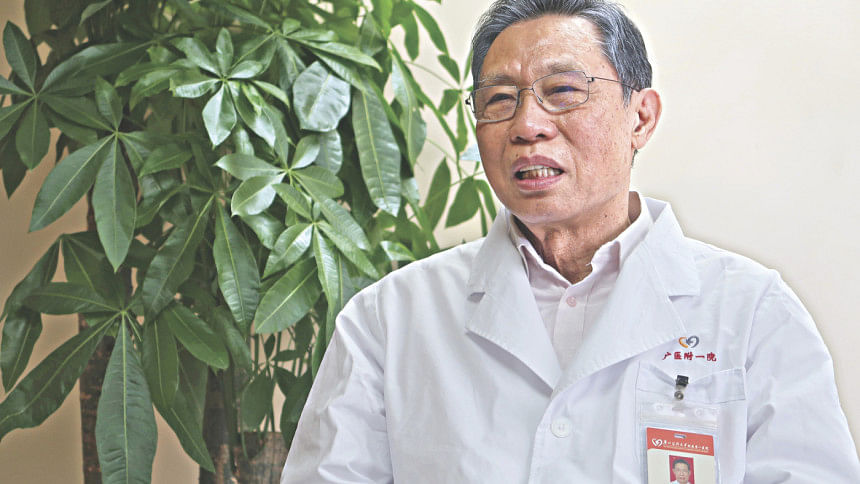Outbreak may be over by April

The coronavirus outbreak is hitting a peak in China this month and may be over by April, the government's senior medical adviser said yesterday, in the latest assessment of an epidemic that has rattled the world.
In an interview with Reuters, Zhong Nanshan, an 83-year-old epidemiologist who won fame for combating the SARS epidemic in 2003, shed tears about the doctor Li Wenliang who died last week after being reprimanded for raising the alarm.
But Zhong was optimistic the new outbreak would soon slow, with the number of new cases already declining in some places. The peak should come in middle or late February, followed by a plateau and decrease, Zhong said, basing the forecast on mathematical modelling, recent events and government action.
"I hope this outbreak or this event may be over in something like April," he said in a hospital run by Guangzhou Medical University, where 11 coronavirus patients were being treated.
Though his comments may soothe some global anxiety over the coronavirus - which has killed more than 1,000 people and seen more than 40,000 cases, almost all in China - Zhong's previous forecast of an earlier peak turned out to be premature.
"We don't know why it's so contagious, so that's a big problem," added Zhong, who helped identify flaws in China's emergency response systems during the 2002-03 SARS crisis.
He said there was a gradual reduction in new cases in the southern province of Guangdong where he is based, and also in Zhejiang and elsewhere. "So that's good news for us."
With China taking unprecedented measures to seal infected regions and limit transmission routes, Zhong applauded the government for locking down Wuhan, the city at the epicentre which he said lost control of the virus at an early stage.
Zhong said uncertainties remained about how the coronavirus was infecting patients, if it can spread via faeces and whether so-called "superspreaders" were helping transmit the disease.
Wearing masks outside contagion zones was not always necessary, he said, and the United States' and others' entry ban on Chinese was an over-reaction. Global, apolitical cooperation was crucial, Zhong said.
"I think maybe we should be going closer, I mean in particular our colleagues and scientists, and have more cooperation," he said. "We're just dealing with the disease - nothing to do with the political, nothing."

 For all latest news, follow The Daily Star's Google News channel.
For all latest news, follow The Daily Star's Google News channel. 




Comments